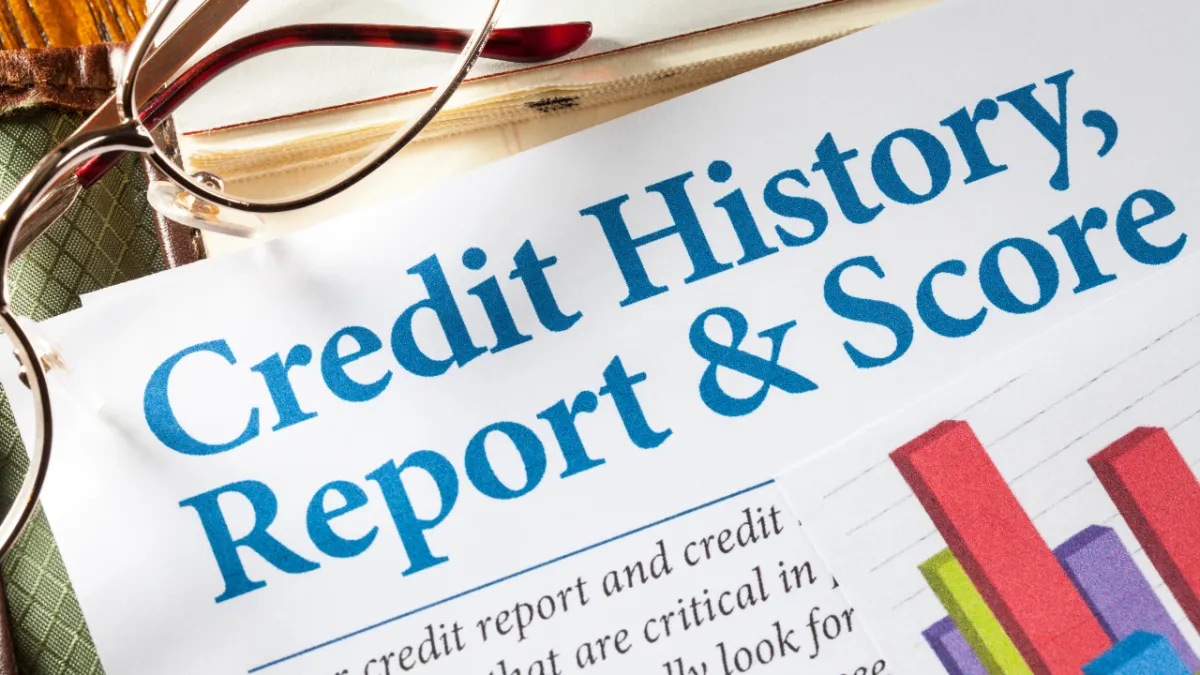Blogs
MARCH 13, 2023
High-Risk SIC Codes & Restricted Industrial Classifications

While originally developed for federal government agencies, business classification system SIC codes are now also used by credit reporting agencies. So, be not shoot yourself in the foot by choosing a high-risk SIC code when registering your business.
Usage
When extending credit, financial institutions like banks and alternative lenders use SIC codes to quickly determine the creditworthy of a specific business. Low-risk industries like car washes and pet stores are more likely to get credit approval while those in a high-risk industry group like travel, banking, or investing are more likely to get denied.
The IRS uses SIC codes as a way to provide a baseline for business incomes within a particular niche. When a company’s revenues do fall outside industry norms, this could trigger an audit. Other government organizations might use SIC classifications to make business comparisons, risks assessments, and economical analysis reports.
Statistical data collected by private businesses, especially those who create targeted marketing campaigns might use SIC codes to categorize and prioritize their customer database. Every three years, the Bureau of Labor Statistics SIC codes get updated as they gather new data and revise their detailed reports on workforces, wages, and pricing issues.
Classification
There are 11 primary divisions within the Standard Industrial Classification (SIC) system where each business is categorized within these specific industry groupings.
Mining
Services
Agriculture, forestry, and fishing
Construction
Insurance, finance, real estate
Transportation and public utilities
Manufacturing
Retail trade
Wholesale trade
Public administration
Non-classifiable establishments
Divisions
These 11 classifications are then split into sub-divisions that contain 83 two-digit major industry groups, 416 three-digit secondary industry groups, and over 1,000 unique four-digit industries. Once you know how the SIC digits are ordered, it’s quite easy to figure out the divisional branches of any business.
1st & 2nd digits ? Major industry group
3rd digit ? Secondary industry group
4th digit ? Specific industry
Industries
There are many SIC code industry classifications that you need to be aware of that can cause major headaches. Restricted industries should be avoided unless you are confident in your business being self-sufficient.
High-risk industries will generally be limited to asset-based funding options, while medium-risk businesses may need to show proof of consistent gross receipts to receive revenue-based loan approval.
Very few of these risky industries will even qualify for startup business loans that are not based on personal credit and guarantees.
Restricted
Should your SIC code be related to any of these somewhat banned industries, you’ll likely be heavily restrict in your business loan options with most alternative lenders automatically rejecting you.
Ammunition or weapons manufacturing
Adult entertainment, adult products, gaming or gambling activities
Banks, federal reserve banks, foreign banks, and bank holding companies
City, county, state, and federal governmental agencies
Commodity brokers, security brokers, and mutual fund managers
Loan brokers, mortgage brokers, mortgage bankers, and mortgage companies
Oil trading, energy, petroleum extraction, or production
Pawn shops, bail bonds, check cashing agencies, speculative loan services
Political campaigns, candidates, or committees
High Risk
Business SIC codes found within these primary industries won’t get you automatically declined for business loans, but it may prove difficult to secure financing if you cannot offer assets as loan security.
Typically, any business whose products or services experience a lot of pricing or market volatility, high-refund rates, or are open to lawsuits would fit into this category.
Travel agencies
Real estate investing or anything else investing related
Real estate agents/brokers, developers, or land sub-dividers
Auto, recreational vehicle, or boat sales
Mobile or manufactured home sales
Agriculture or forest products
Hotels or motels
Nursing homes, assisted living facilities, continuing care, and retirement centers
Jewelry, precious stones, and metals
Medium Risk
There is some leeway for businesses that have SIC codes within these medium-risk categories. but loans might also be limited to match current monthly revenues. If you’re able to collect assets like land or equipment, these can be also used to get the financing you need.
Typically, you want to avoid sales-related businesses that are not brick mortar or don’t have residual income streams. Perishable inventory can be problematic, along with sole-proprietors who cannot prove to have steady work.
Any business that is currently profiting, or can show having $5k or more in monthly revenues will be given much wider loan approval consideration.
General contractors
Long-distance trucking or courier services
Taxi cabs and Limousine services
Dry cleaners
Computer, software, and programming-related services
Gas stations or convenience stores
Restaurants or drinking establishments
Phone sales and direct selling establishments
SIC Types
Do note, that not all SIC codes are created equal, or are even government regulated. The most important is your primary SIC, as choosing this wisely can be the determining factor in whether your business credit applications get easily approved. If you choose a high-risk or restricted industry SIC code it might spell trouble.
Primary
The 4-digit primary SIC code denotes a specific industry that you can choose to be at the core of your business. Be very careful when selecting this, as
high-risk SIC codes can cause you problems when trying to secure a business loan, while low-risk SIC codes can help pave the way to obtaining loan approval.
Secondary
Beyond the primary SIC code that categorizes a business’s core industry, five secondary SIC codes can be chosen to represent their auxiliary industries. These secondary codes are also allowed to be within or outside their primary industry group.
NAICS
In 1997, the government attempted to replace four-digit SIC standardized codes with six-digit North American Industry Classification System (NAICS) codes.
NAICS is a new classification system that was literally born out of NAFTA (North American Free Trade Agreement) and was meant to standardize and unify business data collection between the United States, Canada, and Mexico.
Due to a larger geographic scope, many private data organizations added additional SIC classifications to the system, which led to there currently being over 10,000 six-digit NAICS codes. But still, many companies, and the SEC (Security and Exchange Commission), a major government agency, use the old four-digit SIC code system.
Today, most companies in the United States have both a SIC code and a NAICS code.
Private
Many six, seven, and eight-digit SIC codes were created by private data companies, and are not sanctioned by federal government agencies. The private SIC codes are mostly used for identification. assessment, and marketing purposes rather than by lenders.
Our Blogs
More Blogs

Avoid business credit mistakes
If you’re looking to build business credit quickly, try not to make any of these missteps that can cause lender concern and score decreases.

Business Credit Reports
When it comes to credit reports, business owners check the company info & financial data found in their business credit profile for accuracy.

What Does 2/10 Net 30 Mean?
Ever wondered what 2/10 means on your net 30 invoice? It’s a discount formula that can also give you a Paydex score boost when paid on time.

High-Risk SIC Codes
While originally developed for federal government agencies, business classification system SIC codes are now also used by credit reporting agencies.

C Corp vs S Corp
By choosing your business structure and corporation status wisely you adjust how you pay taxes to the Internal Revenue Service.

ERC Explained!
Learn the true facts! Any eligible employer who paid qualified wages to W-2 employees during COVID-19 can claim the employee retention credit.
Have A Question?
To the right you'll find answers to the most frequently asked questions we get. Feel free to reach out to us if you have more questions and we'll be happy to answer them.
How do I get Business Credit that's not linked to my SSN?
Just like how consumer credit is linked to your SSN, your business credit is linked to your EIN. This means when applying for business credit, it's usually not required to include your SSN.
Once you properly establish your business entity and Credibility Foundation, you start off building your business credit profile with smaller vendor accounts. As your business pays those retailers you will then qualify for revolving store credit cards, and then cash credit you can use anywhere, just like a normal personal credit card.
Keep in mind that because of federal regulation you will still need to supply a SSN for identity verification purposes. Also providing a personal guarantee can open up even more financing options.

How long will it take me to build Business Credit?
You can qualify for real usable vendor credit immediately. You’ll then start to qualify for store credit within 60-90 days that doesn’t require a personal credit check or personal guarantee.
Within 6 months you should have access to $50,000 in real usable credit, including Visa and MasterCard accounts.
You can then continue to build $100,000-$250,000 or higher in business credit within a year to two.

Is this complicated? Can I really do this?
Every step of the process includes simple education videos and direct resource links so that your business credit building journey is a 'no-brainer'. In the rare occasions that you need help, you have our business credit advisers and finance officers to help!
So as long as you're committed to follow our instructions and are serious about the success of your business, then yes, you really can do this -- even if you're technically challenged.

Can I build my Business Credit on my own?
It's true that between all of our free guides, articles, videos and seminars, you have enough knowledge to go get business credit all on your own. It's also true that we don't hold anything back in our sharing of knowledge because at the core of our company, we want to help as many business owners (and those aspiring-to-be) as possible to have an equal opportunity to succeed and thrive.
With that being said, there still are services you will have to pay for such as 411 listings, business credit monitoring, and a business credit builder so that you're reporting to the right agencies (costing over $3000), not to mention, you'll still have to go out and find vendors and lenders. There are also lots of limitations going this way.
The difference with us is that we have already established countless partnerships and affiliations, which allows us to fully leverage the power of our entire company and client-base for each individual client. Essentially, you get to leverage our company for your benefit. And due to our established credibility in the business credit and financing industry, it's easy for us to expand and constantly add even more funding sources and options, which YOU benefit from. That’s how we have the largest supply of vendors and credit issuers than anywhere else.
In short, if you were to try and get business credit and financing on your own or somewhere else, you'll pay MUCH more than what we ask, and it would take a lot longer. We have this entire process dialed in so that you can get the most amount of funds, in the shortest amount of time, and at the lowest rates possible.

Navigation
© Copyright 2026 | The CapLadder Group LLC | All rights reserved.



